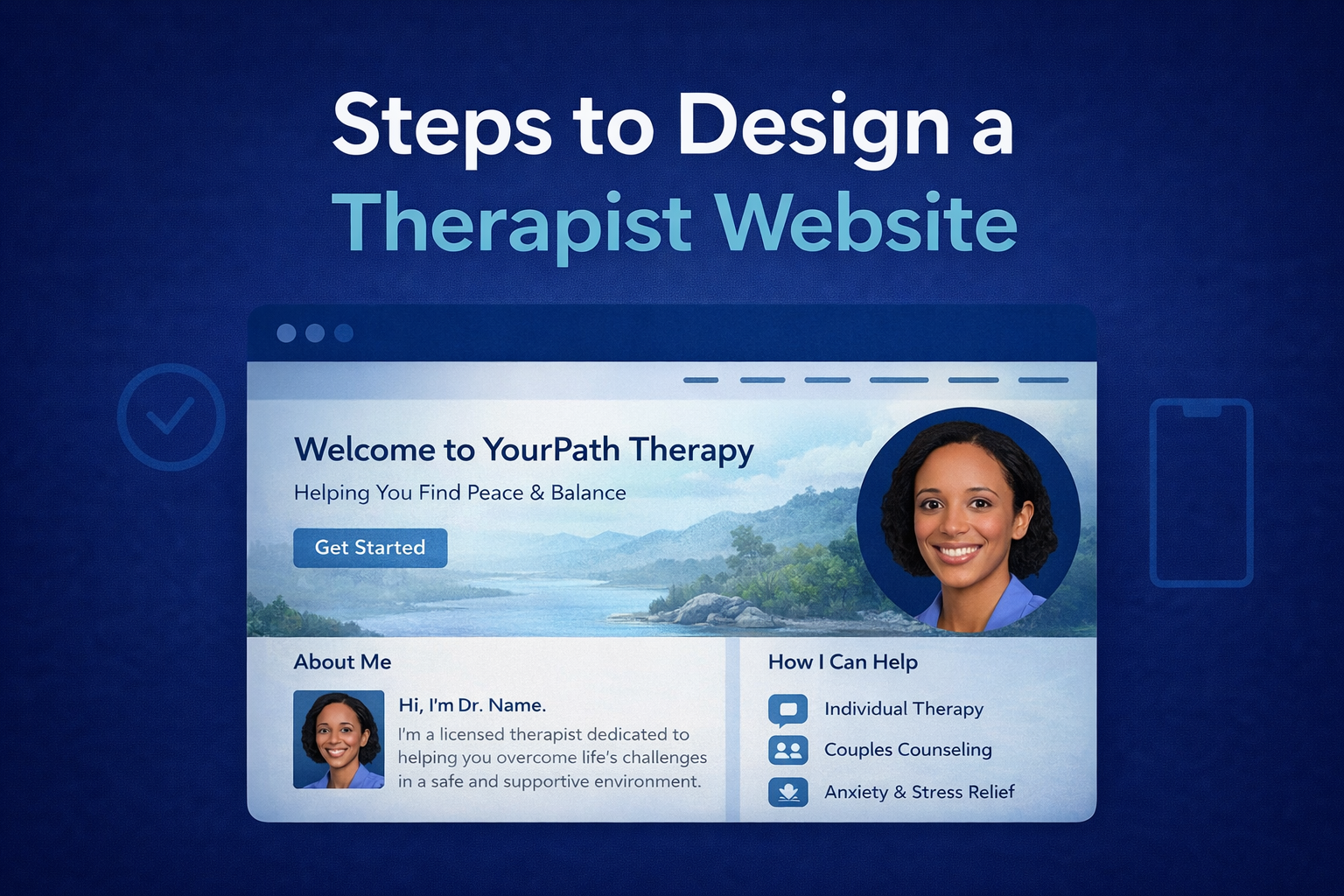The Role of Digital Marketing in Mental Health
Digital marketing for mental health empowers therapists to reach clients seeking support in 2025. From SEO to social media, these strategies amplify your practice’s visibility, connecting you with those who need your expertise. Every click can lead to a life-changing connection.
Why Digital Marketing Matters for Therapists
Clients increasingly turn to the internet to find mental health services. A strong digital presence ensures your practice appears for searches like “therapy for depression” or “counselor near me.” It’s about being where your clients are.
Digital marketing builds trust, showcases expertise, and drives inquiries. By leveraging these tools, you can transform lives while growing your practice sustainably.
Also Read: keywords for therapists
Building a Strong Website Foundation
Your website is your digital storefront. Ensure it’s:
- Mobile-Friendly: Most clients search on phones.
- HIPAA-Compliant: Protect client data with secure forms.
- User-Friendly: Include clear navigation and booking options.
Optimize for speed and accessibility to enhance user experience. For details, see our guide to building a HIPAA-compliant therapist website.
Mastering SEO for Visibility
SEO drives organic traffic to your site. Target long-tail keywords like “online therapy for anxiety in [city]” to attract high-intent clients. Use tools like Google Keyword Planner to find relevant terms.
Optimize title tags, meta descriptions, and headers with keywords like “digital marketing for mental health.” For advanced techniques, explore our SEO strategies for therapists.
Leveraging Local SEO for Community Impact
Local SEO connects you with nearby clients. Optimize your Google Business Profile with:
- Accurate contact details.
- Professional photos.
- Client reviews to build trust.
Use location-specific keywords like “therapist in [neighborhood].” Respond to reviews promptly to enhance credibility. Learn more in our local SEO guide for therapists.
Engaging Clients with Content Marketing
Content marketing establishes authority. Create blog posts on topics like “managing stress” or “benefits of teletherapy.” Use engaging formats:
- How-to guides.
- Short videos.
- Infographics on mental wellness.
Post weekly and promote via email or social media. For inspiration, check our content marketing ideas for therapists.
Social Media Strategies for Connection
Social media platforms like LinkedIn or Instagram let you share insights and connect with clients. Post tips, anonymized success stories, or mental health resources to engage followers.
Respond to comments to build community. Avoid sharing sensitive client information. Dive into our social media strategies for therapists.
Digital Marketing Tools and Techniques
| Tool/Technique | Purpose | Resources | Benefit |
|---|---|---|---|
| SEO | Boost search rankings | Google Keyword Planner, Yoast | More organic traffic |
| Local SEO | Attract local clients | Google Business Profile, Moz Local | Increased community inquiries |
| Content Marketing | Build trust and authority | WordPress, Canva | Engaged audience, better SEO |
| Social Media | Connect with clients | Instagram, LinkedIn | Stronger brand presence |
| Analytics | Track and refine strategies | Google Analytics, Search Console | Data-driven growth |
Harnessing Analytics for Growth
Use Google Analytics to track:
- Organic Traffic: Visitors from search engines.
- Bounce Rate: Indicates content relevance.
- Conversions: Measures bookings or inquiries.
Monitor keyword performance with Search Console. Review data monthly to optimize high-performing pages or fix underperforming ones.
Voice Search and AI in 2025
Voice searches like “find a therapist near me” are rising. Optimize for conversational keywords and FAQs to capture featured snippets. Ensure mobile-friendliness for voice users.
AI tools can analyze trends, but human oversight ensures ethical content. Explore our voice search SEO guide.
Ethical Digital Marketing Practices
Ethics are critical in mental health marketing. Avoid exaggerated claims or manipulative tactics. Ensure HIPAA compliance for all digital tools, especially forms and teletherapy platforms.
Focus on authentic, client-centered content to build trust and align with Google’s guidelines.
Success Stories in Digital Marketing
One therapist used targeted SEO to increase inquiries by 60% in six months. Another leveraged social media to share mental health tips, growing their client base by 35%.
These wins highlight digital marketing’s potential. Apply similar strategies to transform lives through your practice.
Overcoming Digital Marketing Challenges
Challenges like algorithm changes or limited budgets can slow progress. Start with free tools like Google Analytics. Update content regularly to stay relevant.
For complex tasks, like technical SEO or HIPAA compliance, consider expert support. Consistency is key to success.
Future-Proofing Your Digital Strategy
Stay ahead of 2025 trends like AI-driven search or interactive content. Create evergreen content, like mental health guides, that evolves with client needs.
Engage clients through webinars or forums. Stay informed via industry blogs to keep your strategy cutting-edge.
Conclusion
Digital marketing for mental health transforms lives, one click at a time. By mastering SEO, content, and social media, you can reach more clients and make a lasting impact.
Start today to amplify your practice’s reach. For expert support, contact Mental Health IT Solutions.







